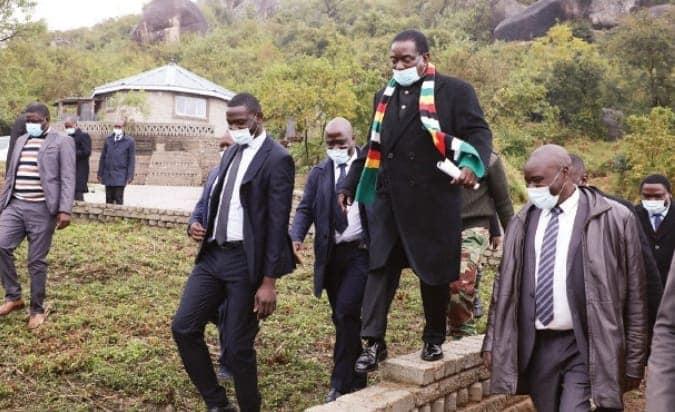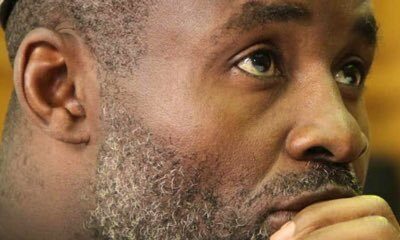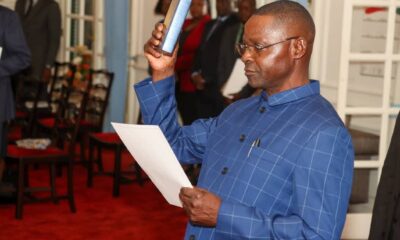PRESIDENT Emmerson Mnangagwa, who has been in government since 1980, and at the helm of state power since November 2017, is desperate to cling on beyond 2028 when his mandatory two terms end because of a coterie of reasons.
The insatiable love for power and the domino effects of being a student of the late leader Robert Mugabe who ruled for 37 years have been cited as some of the reasons why Mnangagwa wants to hold on.
Desire for longevity
Close sources in the know of Mnangagwa’s current state of mind and thinking revealed a number of reasons why the 81-year-old leader wants to exceed his constitutionally mandated two terms.
“The first reason is his desire for longevity. This is not surprising because he is the late Robert Mugabe’s student. This is the legacy of his association and grooming,” a senior Zanu PF official said.
Mugabe was in power from Independence in 1980 until he was removed by the military in 2017.
Trappings of power
The sources also said trappings of power are making Mnangagwa want to rule longer than is provided in the constitution.
“There is nothing he knows except power. He is the only surviving minister who was in cabinet from 1980. He is not prepared to be an ordinary citizen now. He loves power as can be seen by how happy he was to assume the rotational Sadc chair,” said another source.
“Besides, he fought long and hard to be President, particularly with the faction led by the late General Solomon Mujuru. He also battled former vice-president Joice Mujuru after the general’s death and eventually took power in a coup.”
After Independence, Mnangagwa held a series of senior cabinet positions under Mugabe. From 1980 to 1988, he was the country’s first minister of State Security, and oversaw the Central Intelligence Organisation.
Mnangagwa was minister of Justice, Legal and Parliamentary Affairs from 1989 to 2000 and then Speaker of Parliament from 2000 until 2005, when he was demoted to minister of Rural Housing for openly jockeying to succeed the aging Mugabe.
Mnangagwa bounced back to favour during the 2008 general election, in which he ran Mugabe’s campaign as his chief election agent, orchestrating political violence against the opposition Movement for Democratic Change, then led by the fiery Morgan Tsvangirai, now late.
Mnangagwa then served as minister of Defence from 2009 until 2013, when he became Justice minister again. He went on to be appointed first vice-president in 2014 and was widely considered as the leading candidate to succeed Mugabe.
Although Mnangagwa’s ascendancy was opposed by Mugabe’s wife, Grace Mugabe, and her Generation 40 political faction, he became President in November 2017 after a military coup.
He controversially won the 2018 elections and secured his second term after again controversially winning the 2023 elections. As a cabinet member since 1980, Mnangagwa has enjoyed unfettered freebies for the past four decades.
Benefits as Head of State and Government
Our sources say another reason making Mnangagwa want to stay longer is the unease of losing benefits that he is receiving as leader of Zimbabwe.
Mnangagwa enjoys hefty perks, tight security and feeds from the government trough where he
Why Mnangagwa wants term extension in power basically gets whatever he wants for free.
Incentives
Mnangagwa also has access to lucrative government tenders which are doled out to his blue-eyed boys as confirmed by the recently leaked audio recording of Wicknel Chivayo bragging to his erstwhile colleagues Mike Chimombe and Moses Mpofu how his close proximity to the President was giving him access to government tenders.
As they wrangled over the sharing of proceeds from a US$100 million Zimbabwe Electoral Commission underhand deal for the supply of election materials, Chivayo bragged that he had the capacity to influence government tenders as he had a tight grip over Mnangagwa.
“The incentives include having an upperhand to get tenders for his cronies, gifts from wealthy associates and freebies, some of them bordering on bribery. His children are in mining and many commercial activities as a direct result of his presidency. His wife is deeply involved in a number of deals, including the Belarus deals,” said the source.
Human rights abuses
The sources also say Mnangagwa is desperate to overstay because he could be fearing retribution over alleged past transgressions.
Mnangagwa’s alleged role in the Gukurahundi massacres, in which 20 000 mostly Ndebele civilians were killed by North Korean-trained 5th brigade in the Midlands and Matabeleland regions during his tenure as State Security minister is well documented.
The sources said the 2008 pre-election abductions, killings during the 2008 election re-run and the murder of protesters by the army on 1 August 2018 in Harare as well as a series of other human rights abuses could be another source of unease.
After Mugabe had lost elections to Tsvangirai, Mnangagwa was instrumental in retaining his then boss in office after a brutal campaign.
These also include fresh cases of arrest and detention of human rights defenders and dozens of other opposition activists.
Fear of corruption cases
Since Mnangagwa’s ascension to power in 2017, many of the companies that have signed “mega-deals” with Zimbabwe have either been connected to him, his family or cronies in government.
Nothing much has come out of the deals partly because of the questionable track record of the investors involved.
During the start of his tenure, Mnangagwa claimed he had clinched US$11 billion worth of business for the country.
However, it then emerged the bulk of the flaunted deals were murky and spearheaded by dodgy characters.
In a four-part Al Jazeera investigative documentary dubbed “The gold Mafia,” Mnangagwa came out as Mario Puzo’s Vito Corleone (Brando) — The Godfather or simply mafia boss.
The investigation showed that different gold smuggling syndicates looting gold and salting away proceeds to offshore accounts have one common thread — links to Mnangagwa.
Main characters in the film who sucked Mnangagwa into the vortex of action include his own envoy and ambassador-at-large Uebert Angel, a selfstyled prophet who is a key interlocutor throughout the documentary (Diplomatic Mafia), Rikki Doolan (Diplomatic Mafia), Ewan Macmillan (Mr Gold), Kamlesh Pattni (Gold Dealer Brother Paul) and Alistair Mathias (Gold Trader — The Architect).
Mnangagwa’s wife Auxillia, the First Lady, and Pedzai “Scott” Sakupwanya (New Mr Gold) kept the President firmly at the centre of action in the last episode.
One gold smuggler described Mnangagwa — referred to in some instances as Mr Jones — as his business partner.
Another talked of him as an on-and-off partner whom he still meets.
A third said he had to keep the President in the loop about gold smuggling operations.
Fear of military reprisals
Due to the fallout between Mnangagwa and the military after the 2017 coup, the ageing leader could be feeling unsafe to leave power.
Mnangagwa, who fancies himself as Munhumutapa, a reference to historical Shona kings, was supposed to have left in 2023 in terms of a deal with the military, but hung onto power, resulting in the fallout.
He also promised to significantly improve the welfare conditions of the military, which did not happen, further worsening the fallout.
Mnangagwa therefore fears if he relinquishes power, there could be reprisals from the military.





















